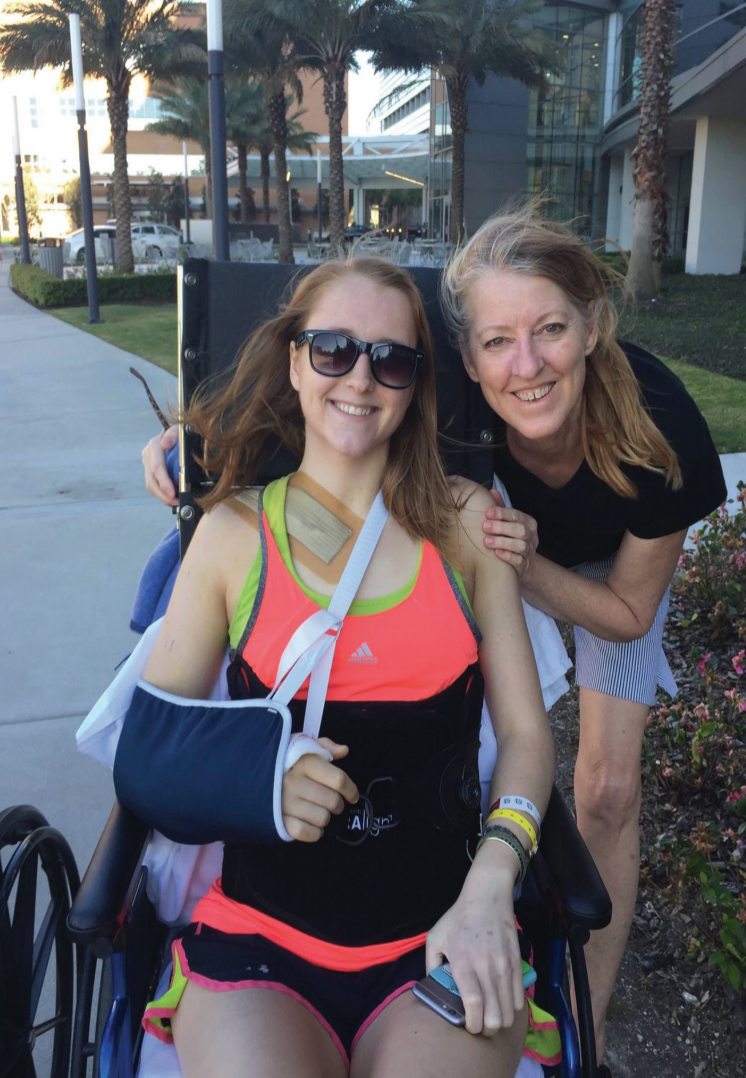Morgan Rulevich
Contributor
[email protected]
After a serious car accident in Orlando, Florida, full-time student athlete Hannah Stuart had three surgeries on a broken wrist, collar bone and shattered vertebrae in her spine.
“Following that, my junior year I tore a ligament in my wrist and had reconstruction surgery in January,” Stuart said.
According to the NCAA sports science institute, the range of responses to injuries varies greatly and can manifest as depression, anxiety, eating disorders, substance abuse and physical abuse.
Stuart said going through the physical and emotional trauma of the accident made it hard to come back and get back into school and exams.
“UNC Asheville’s faculty were definitely way more helpful compared to something I would get at another university and many of my professors were willing to work with me,” Stuart said.
Jay Cutspec, director of health and counseling at UNCA, said a physical injury on top of social isolation causes students to become depressed.
Prevalence of depression or anxiety among students in health professions report higher than the general population in resource-constrained settings and resource-rich settings, according to BioMed Central, a committee on publication ethics.
“The most significant challenge is the fact that students are unable to do all of the things that they were accustomed to doing. Nothing has limited their ability being young, healthy adults so when people get injured all of a sudden not only are they injured, but then on top of it they can’t do the same things that their friends are doing,” Cutspec said.
According to the Government researchers with the National Center for Biotechnology Information, psychological distress among students may adversely influence their academic performance and quality of life and may contribute to alcohol and substance abuse, decreased empathy and academic dishonesty.
“Especially with the car accident or following surgeries, I was on pain pills for a decent amount of time, so it was very difficult to focus and medication made it a lot harder even when I was able to study at home,” Stuart said.
Ample avenues for students seeking support can achieve personalized services at UNCA who offers a diverse amount of resources compared to other universities, Cutspec said.

College based mental health and well being programs, as well as interventions become increasingly imperative as they contribute to prevention of mental health difficulties, according to researchers.
Cutspec said students don’t have to do it alone. He stresses the importance of reaching out to people, not necessarily a counselor but a trainer, coach or family member.
Kenda Mullert, a health promotion coordinator at UNCA, helps interns in their twenties by developing skills to be better people and employees.
“We value the student’s well being so much here, I want to help students define and take responsibility,” Mullert said. “It’s OK to not be OK.”
Recent medical journals report during the last decade, university and college counseling centers report a shift in the needs of students seeking counseling services, from more benign developmental and informational needs, to more severe psychological problems.
“I think students are more afraid to appear that they are in need. It’s the shame about vulnerability no matter what that need is and the idea of opening up to expose yourself is really hard for students,” Mullert said.
According to Mullert, students have an idea of what being happy theoretically looks and feels like and if it’s not that they freak out automatically assuming they’re depressed, lonely or wrong. Mullert said setting goals or making promises to yourself every day to accomplish one small task aids in the decrease of trying to fit into a certain definition of happiness.
“Everybody needs a friend. Everybody needs somebody to talk to,” Mullert said.

















